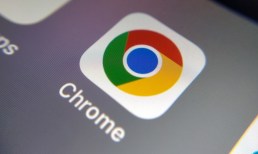From the optional pitch deck to surviving the fundraising process, a new study from file-sharing startup DocSend and Harvard Business School professor Tom Eisenmann provides takeaways for those looking to find the right way to “graduate from bootstrapped to seed-funded, or from angels to a Series A,” TechCrunch reported over the weekend.
“Why do some startups get funded? What makes for the best pitch? How does the process work? Together, we conducted research that gave us the answers to those questions,” the study said.
By analyzing 200 companies as they went through their seed and Series A funding rounds, which resulted in a total of over $360 million raised, DocSend and Eisenmann sought to shed light on what a successful seed round typically looks like. Some of the companies that participated in the study include August Locks, Panjo, Shift Cars, Back to the Roots, Wiser, Tiggly, 20twenty, Boomtrain and mNectar.
“Starting a company is a brutal process. Getting outside funding is a necessary step for many tech startups, but it’s an opaque and frustrating process for those doing it for the first time,” the report stated.
We’d love to be your preferred source for news.
Please add us to your preferred sources list so our news, data and interviews show up in your feed. Thanks!
Some of the main takeaways from the study include:
- Raising seed funding takes a lot of time, “one-fifth of the companies took 20 weeks or longer, and another one-fifth took six weeks or fewer,” the study explained. The longest successful round came in at 40 weeks to close.
- Trying to find funding shouldn’t require reaching out to hundreds of investors, contacting between 20 and 30 is a more likely estimate. The study emphasizes a focus on the quality of the investor connection rather than quantity.
- The presentation deck is key; putting the right emphasis on team, financial and competition slides is important, but don’t let it get too lengthy.
According to the study, the startups averaged contacting 58 investors, scheduling 40 investor meetings and taking 12.5 weeks to close.
Advertisement: Scroll to Continue
Venture capitalists spend roughly 3 minutes and 44 seconds reviewing a startup’s seed deck, meaning it’s best to keep the deck to roughly 19 pages.
“There wasn’t really any correlation between more meetings and more funding. If you contact more investors, you’ll get more meetings. But there is no correlation between the number of investors contacted and the amount of money raised,” TechCrunch explained. “It’s better to go find firms that are already aligned with what your company does and target them first,” they added.
The research findings cover an array of topics, including recommended deck ordering, angels versus seed firms, what to expect from the fundraising process and key facts surrounding Series A funding rounds.
To check out what else is HOT in the world of payments, click here.

 Add as Preferred Source
Add as Preferred Source



